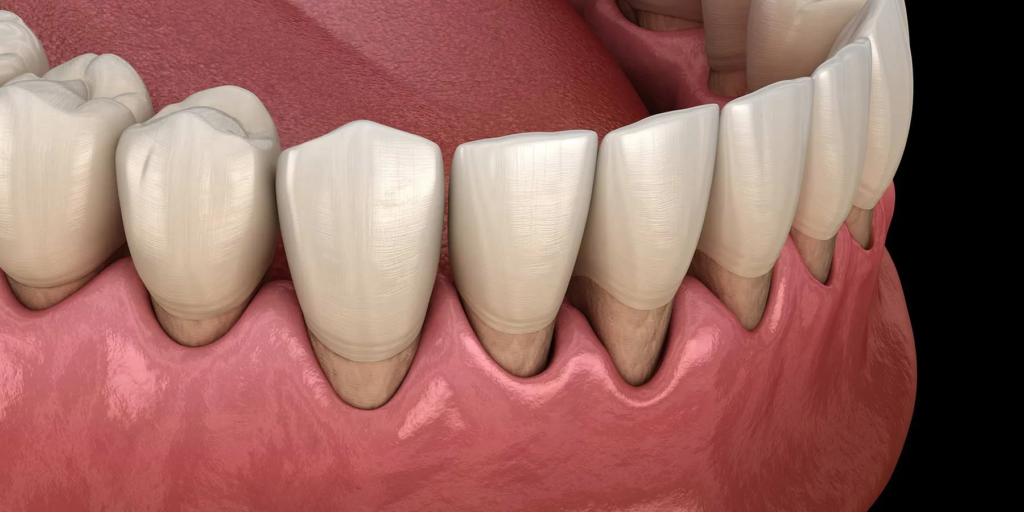The most common cause of tooth loss in adults is gum disease. However, periodontal disease is almost entirely preventable. We offer a comprehensive range of services to help patients maintain optimal periodontal health and enjoy the benefits of a smile that looks, feels, and functions at its best.
What is periodontal disease?

Periodontal disease, more commonly known as gum disease, is a set of inflammatory diseases that affect the “periodontium”, which are the hard and soft tissues surrounding and supporting your teeth. Just like tooth decay, gum disease is attributed to the harmful bacteria in dental plaque and tartar that accumulate around the teeth and under the gums.
Since the progression of periodontal disease is often painless, you may not even be aware of an ongoing disease process. For this very reason, it’s essential to practice good oral hygiene and schedule visits for regular checkups, professional cleanings, and routine care.
Taking care of your smile includes being mindful of the signs and symptoms of gum disease.
Some indications that you may have periodontal disease include:
- Inflamed and red gums
- Bleeding when brushing or flossing
- Receding gums and exposed tooth root surfaces
- Sensitivity to hot or cold temperatures
- Bad breath or a bad taste in the mouth
- Teeth that feel loose
- New spaces developing between the teeth or a change in the bite
- Change in the fit of existing partial dentures
- Discharge around the teeth and gums
- Sharp or dull pain when biting down or chewing food
How is gum disease treated?
Periodontal treatment can be categorized in the following ways:
- Non-Surgical Periodontal Treatment
When periodontal disease is detected early in its onset, conservative or non-surgical methods of care combined with improved hygiene routines can restore periodontal health. While periodic, professional cleanings are sufficient to maintain periodontal health in patients that do not have gum disease, once gingivitis is present, deeper cleanings and possibly other non-surgical methods of care are recommended to treat the condition. - Periodontal Surgery
When gum disease has advanced beyond the initial stage, periodontal surgery is often recommended to effectively remove bacteria and tartar from around the teeth, reduce gingival pocket depth, restore lost tissue as possible, and halt disease progression. It’s essential to keep in mind that gum disease is a progressive condition. If appropriate measures are not taken, gum disease continues to compromise the support of the teeth and have consequences to one’s overall dental health and well-being.
As untreated gingivitis evolves into more advanced stages of gum disease, periodontal pockets deepen, the bacteria become more difficult to remove, and the gaps between the surface of the teeth and gums get larger. When pocket depth increases to the point of being beyond the reach of deep cleanings and other conservative methods of care (5mm or more), gum surgery to clean and treat the damage to gums and underlying bone is typically recommended.
The goals of pocket reduction surgery are to accomplish the following:- Remove sub-gingival bacteria beneath the gums and from the surfaces of the roots of the teeth
- Halt damage to the underlying bone, and recontour the affected hard tissues as needed
- Reduce pocket depth to facilitate easier cleaning of the teeth and gums and the maintenance of optimal periodontal health
Today, in addition to conventional surgical approaches to care, dental lasers are also used to perform select periodontal procedures. When applicable, laser technology can help treat periodontitis, reduce pocket depth, address peri-implantitis, and remove or recontour gingival tissues for cosmetic purposes.


